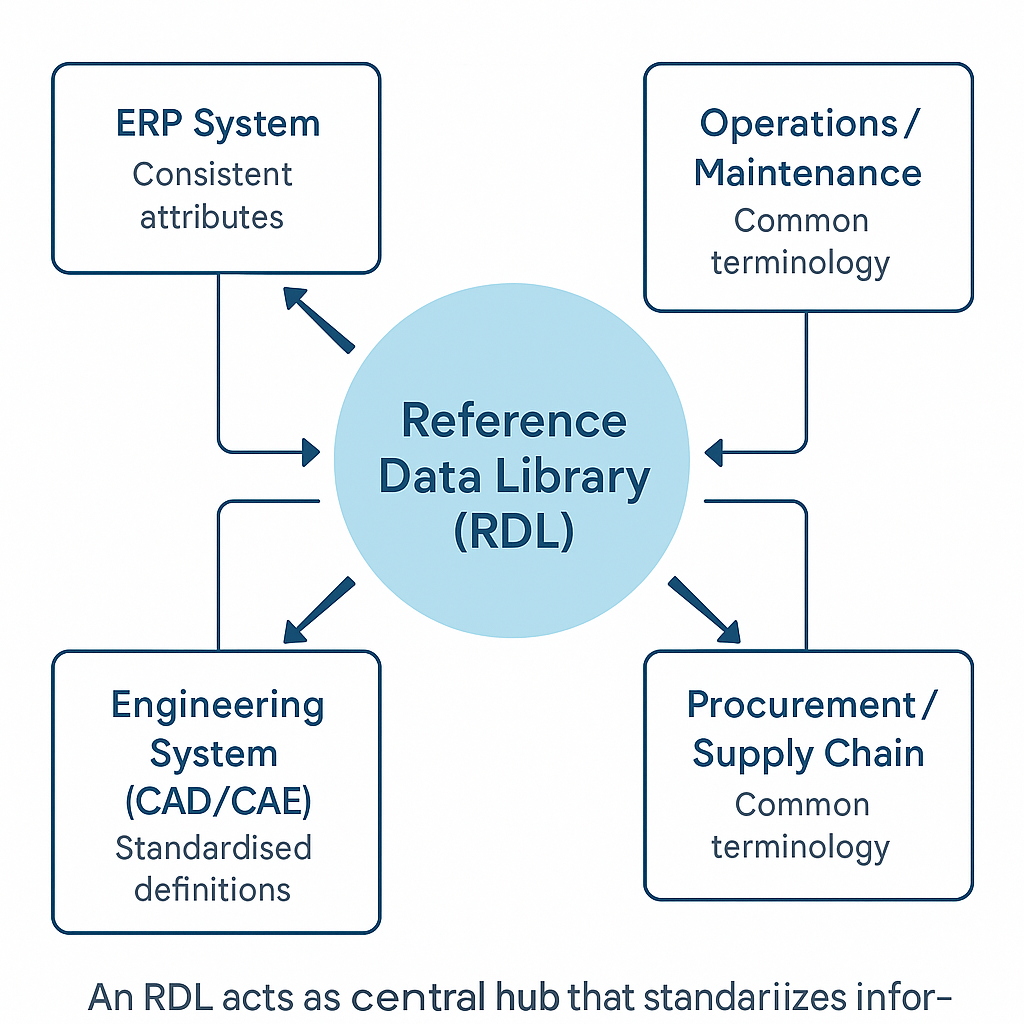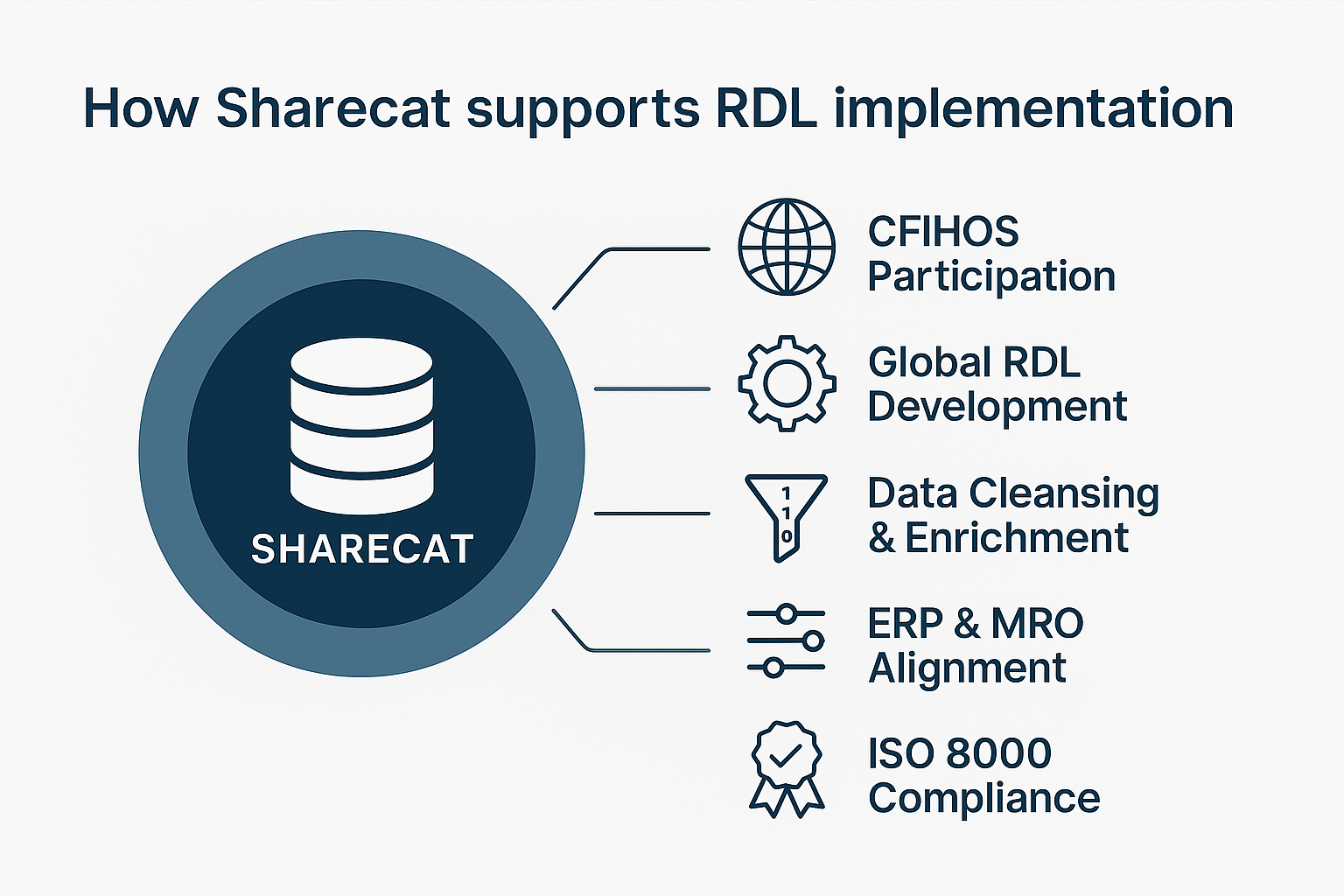A Reference Data Library (RDL) is a structured collection of standardised definitions, terms, and attributes used to describe engineering and asset data.
RDLs ensure that all parties — operators, contractors, and suppliers — use a common language when exchanging technical information.
In engineering, RDLs are often based on standards such as CFIHOS and ISO 8000, ensuring interoperability across tools, databases, and organisations.

In a database context, reference data refers to the consistent values that describe key entities — such as equipment types, document categories, or asset attributes.
A Reference Data Library provides these definitions centrally, so different systems interpret data the same way.
What Is an Example of Reference Data?
Examples of reference data include standardised lists such as:
These ensure everyone describes and classifies information consistently.

Implementing an RDL brings clear business and operational benefits:

The AIM CDE Reference Data Library (Asset Information Model – Common Data Environment) plays a similar role by managing reference data for digital assets throughout their lifecycle.
It ensures that asset data used in digital twins, BIM systems, and maintenance platforms remains consistent and interoperable.
Sharecat Data Services actively contributes to the global CFIHOS initiative and helps organisations adopt Reference Data Libraries aligned with international standards.
We assist in:
By leveraging RDLs, Sharecat improves data integrity, reduces duplication, and ensures smooth handover of engineering information across the asset lifecycle.
